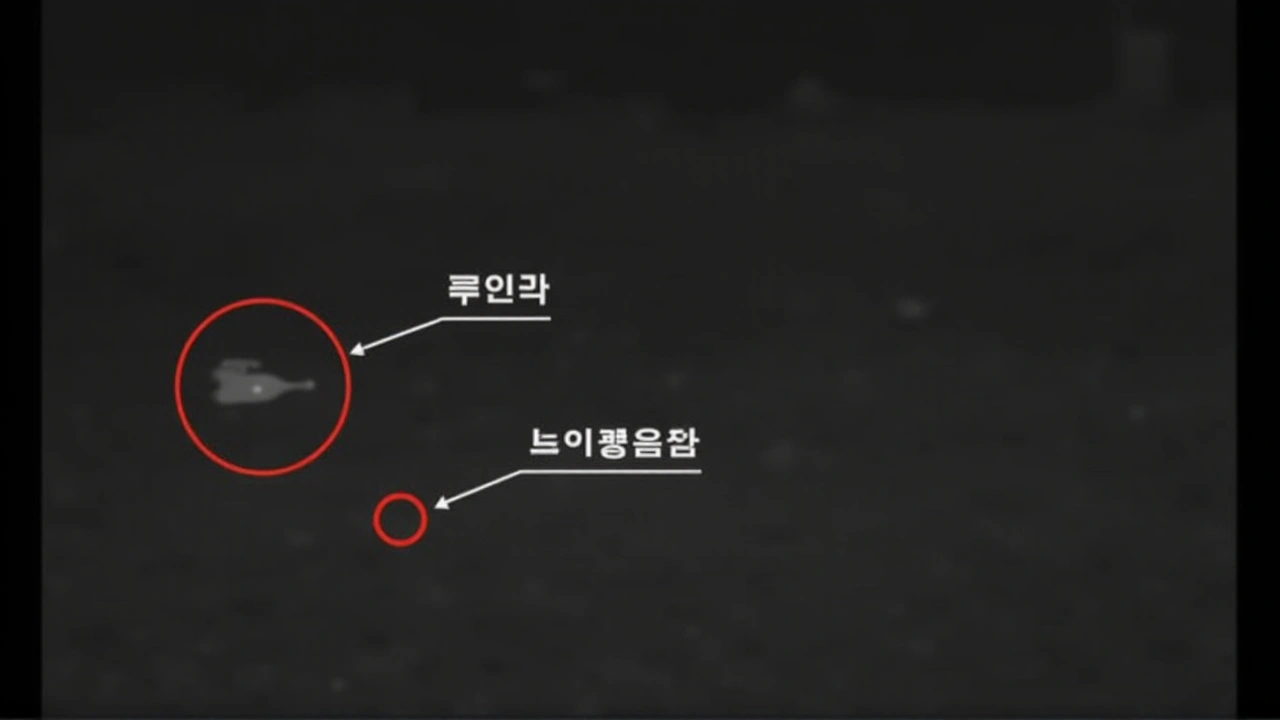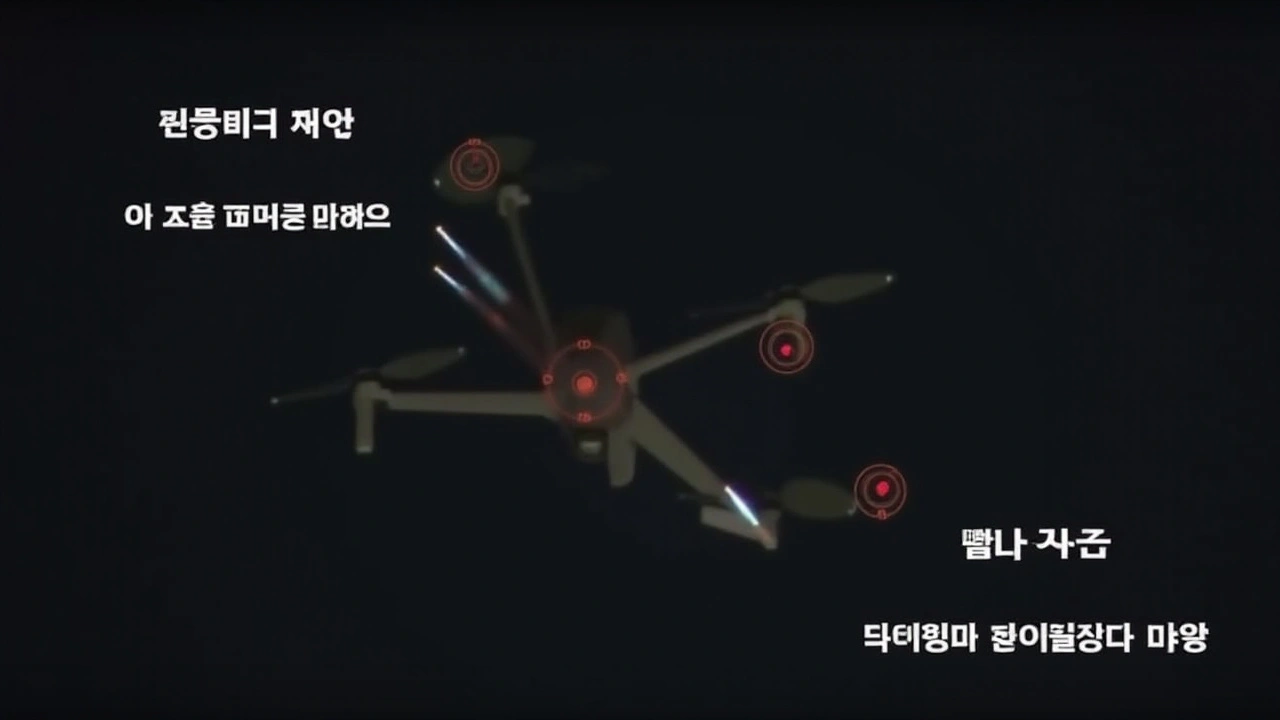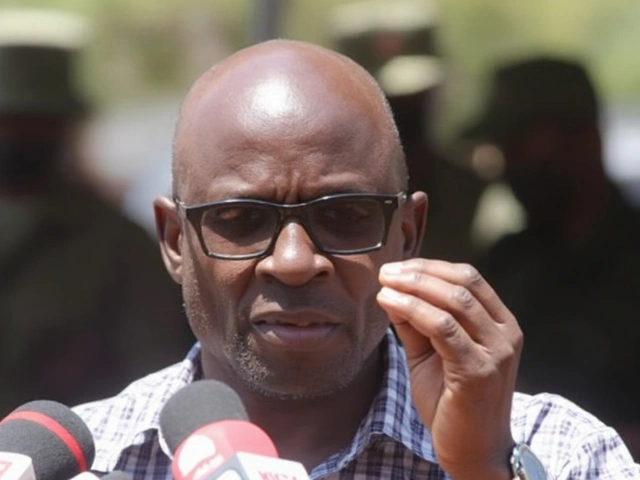Heightened Tensions on the Korean Peninsula
The already precarious relationship between North and South Korea has hit a new low following statements by Kim Yo Jong, the influential sister of North Korea’s leader Kim Jong Un. On Saturday, she issued a dire warning to South Korea, citing potential catastrophic repercussions should any South Korean drones be found flying over Pyongyang. Her words, broadcast through North Korea's state-run media, echo tensions that many worry could spark a more severe conflict.
North Korea's foreign ministry had alleged that South Korean drones intruded on Pyongyang's airspace several times over the past two weeks, asserting that these provocations were intolerable and would be met with strong retaliatory measures. However, South Korea’s Joint Chiefs of Staff responded by claiming they could not confirm any drone activities over North Korea, adding to the list of grievances and miscommunications that plague the countries' relations.
Accusations and Denials
The gravity of the situation was further emphasized by Kim Yo Jong, who pointed to a recent incident involving drones dropping anti-North Korean leaflets. The operation, supposedly involving South Korean non-governmental organizations, was perceived as a blatant attack on their sovereignty. Kim blames the South Korean military for their alleged inability to monitor or prevent these breaches into North Korean airspace, indicating that they will bear full responsibility for any consequences.
Relations have been steadily deteriorating since May, with North Korea retaliating by sending hundreds of balloons filled with rubbish into South Korea. Pyongyang claims this is a direct response to actions by activists and defectors based in South Korea who have launched balloons carrying aid and leaflets critical of the North Korean regime and its leader, Kim Jong Un. This back-and-forth has only increased the hostility felt on both sides of the demilitarized zone.

Implications of Unresolved Disputes
Kim Yo Jong’s rhetoric is notably aggressive, referring to the South's denials as tantamount to an admission of guilt, slamming their military as "gangsters" perpetrating violations of North Korea's sovereign rights. Her words highlight an intensifying crisis that could have serious implications not just for the Korean Peninsula, but for geopolitical stability in the region at large. Both countries have historically exhibited a tendency for aggressive posturing, and incidents like these have a disturbing tendency to spiral out of control.
The succession of accusations, particularly those involving unverified drone activity, echoes a larger narrative of distrust and tension that has defined inter-Korean relations for decades. Analysts worry that as these provocations continue, they could serve as a catalyst for armed conflict, inadvertently drawing other global powers into a confrontational stance, given past alliances and security commitments.
The Role of State-Controlled Narratives
The media landscape on both sides greatly influences the public's perception of these incidents. In North Korea, state-controlled media crafts a narrative that suggests constant threats from their southern neighbor, ensuring public sentiment remains aligned with the regime's objectives. South Korea, on the other hand, maintains a more reactive stance but struggles with countering North Korea's claims without concrete evidence due to the opacity surrounding their neighbor's military activities.
Experts suggest that behind the public displays of defiance, both countries continue to engage in back-channel communications. Although formal peace talks have been stalled, there remains hope that private diplomatic efforts could yield ways to ease tensions. However, with strong public statements like those from Kim Yo Jong, finding common ground remains a brutal challenge. The role of international mediators could become ever more vital in avoiding an imminent crisis.

International Implications and Future Outlook
The international community keeps a close eye on developments in this volatile region, with key players such as China, Japan, and the United States having vested interests in maintaining peace. Any further provocation could spur intensified diplomatic efforts, potentially leading to sanctions, military alliances strengthening, or even strategic talks involving multiple stakeholders to find a lasting resolution.
In summary, the latest chain of events represents more than just a spat between estranged neighbors. It signifies the ever-present risk of emotional escalation leading to tangible conflict in a region where peace remains fragile. With vocal leaders like Kim Yo Jong setting the tone, the world watches with bated breath, hoping cooler heads prevail sooner rather than later.






16 Comments
Kelly Ellzey
October 15, 2024 AT 13:45 PMi just keep thinking about how both sides are stuck in this loop of fear and blame... what if we stopped treating each other like enemies and started treating each other like people who just want to survive? 🤔
maggie barnes
October 17, 2024 AT 06:25 AMsouth korea is a puppet state and north korea is right to call them out. the drones are illegal and the leaflets are terrorism. stop pretending this is about human rights.
Lewis Hardy
October 18, 2024 AT 19:27 PMit's wild how much emotion is tied to these drones. they're not weapons, they're basically flying posters. but to them, it's like someone yelling slurs in your living room. maybe we need to stop measuring sovereignty by airspace and start measuring it by dignity.
Prakash.s Peter
October 20, 2024 AT 01:02 AMThe geopolitical implications are negligible. North Korea's posture is performative. Their economy is collapsing, their population is starving, and their only remaining currency is fear. The drone narrative? A distraction. A theatrical flourish to mask internal decay.
ria ariyani
October 20, 2024 AT 01:03 AMokay but imagine if someone dropped a bag of trash on your front porch every week... and then you started flying drones over their house... and then they sent balloons with poop... and then you called them gangsters... this is the most dramatic soap opera in history 😭
Emily Nguyen
October 20, 2024 AT 02:51 AMlet's be real - this isn't about leaflets. it's about regime survival. kim yo jong knows if the people in the north start seeing the south as normal, the whole system collapses. so she's weaponizing paranoia. classic authoritarian playbook.
Ruben Figueroa
October 20, 2024 AT 16:50 PMso north korea says "we'll nuke you" for drones... and south korea says "we didn't do it"... and the world just... shrugs? 😂 this is like watching toddlers throw tantrums but with nukes. 🤦♂️
Gabriel Clark
October 22, 2024 AT 09:33 AMthe tragedy here is that both populations are victims of propaganda. ordinary people on both sides don't hate each other - they're just fed lies by their governments. real peace will only come when the people are allowed to hear each other's voices.
Elizabeth Price
October 22, 2024 AT 11:20 AMyou're all missing the point - this isn't about drones, it's about legitimacy. if north korea admits the drones were civilian-led, it admits it can't control its own borders - which means the regime is weak. so they blame the military. it's not about sovereignty - it's about image.
Steve Cox
October 22, 2024 AT 13:38 PMwhy do we even care? nobody in the usa gives a damn about korea. we got our own problems. these guys have been yelling at each other since 1953. it's not going to change. let them have their drama. we'll just keep selling them weapons and pretending we're the peacekeepers.
Aaron Leclaire
October 22, 2024 AT 20:31 PMdrones are not weapons.
Mitch Roberts
October 23, 2024 AT 12:35 PMi just watched a video of a north korean guy trying to catch a balloon with a stick and he slipped in the mud and it was kinda beautiful? like... they're all just people trying to get through the day, even if their leaders are insane. 🤷♂️
Mark Venema
October 24, 2024 AT 07:47 AMThe escalation of rhetoric, while alarming, must be contextualized within the broader framework of asymmetric deterrence. North Korea's strategic calculus relies on perceived vulnerability to justify its military posture. The drone incidents, regardless of veracity, serve as a catalyst to reinforce domestic cohesion and external intimidation. Diplomatic channels, though dormant, remain the only viable path to de-escalation.
Brian Walko
October 25, 2024 AT 11:42 AMwe need to stop seeing this as a binary conflict. there are thousands of south koreans who want peace. there are north koreans who risk everything to send messages out. maybe the real enemy isn't each other - it's silence.
Derrek Wortham
October 27, 2024 AT 04:15 AMthis is why i don't trust anyone with a government job. they turn everything into a war. a balloon? a drone? it's not an invasion - it's a protest. but no, let's turn it into a national security crisis. because that's what sells.
Derek Pholms
October 27, 2024 AT 08:37 AMyou know what's funny? both sides are using the exact same language. 'sovereignty', 'provocation', 'responsibility' - it's like they're reading from the same script written by cold war bureaucrats. the real tragedy isn't the drones or the balloons... it's that nobody remembers what peace sounded like.